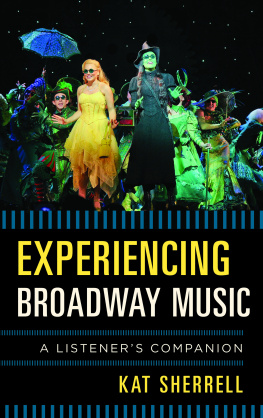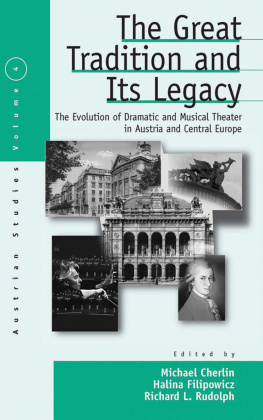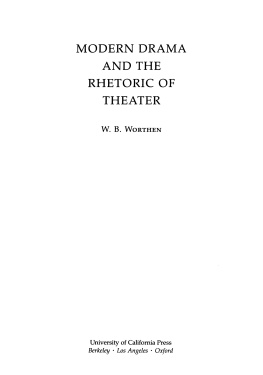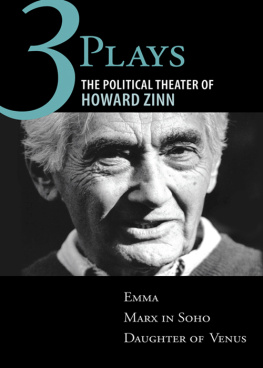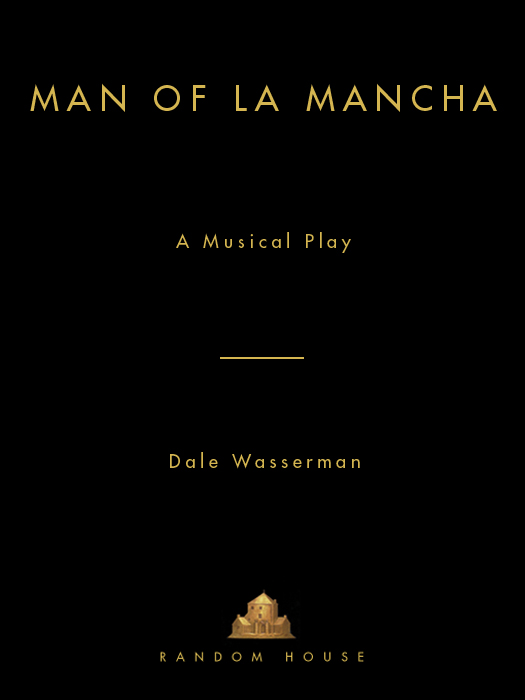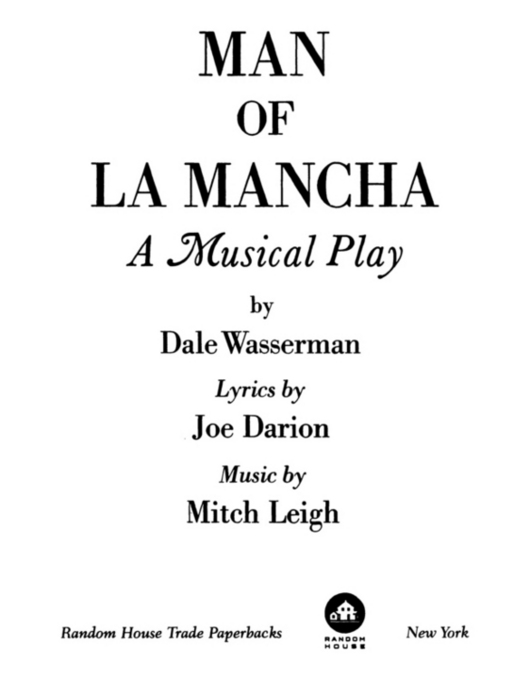ABOUT THE AUTHORS
D ALE W ASSERMAN has been in theatre since age nineteen, posting successes as director, producer, and lighting designer before turning to writing. To date he has authored more than sixty works in the fields of television, stage, and movies, garnering more than forty awards. Among his prize-winning TV plays are The Power and the Glory, Eichmann: Engineer of Death, Stranger, and I, Don Quixote, which was to become Man of La Mancha. His movies include The Vikings, Cleopatra, Mister Buddwing, and A Walk with Love and Death. He is the dramatist of One Flew Over the Cuckoos Nest, making him one of Americas most-produced playwrights worldwide.
J OE D ARION is the author of the operas Archy and Mehitabel, Galileo, and And David Wept. In addition to Man of La Mancha, he has written the lyrics for the Broadway musicals Illya Darling and Shinbone Alley. In addition to the Tony, he has received the Drama Critics Circle Award, the Outer Critics Circle Award, the Gabriel Award, the Ohio State Award, and the International Broadcasting Award.
M ITCH L EIGH studied with Paul Hindemith at the Yale School of Music and has written both jazz and opera. Man of La Mancha was his first Broadway musical. He is the recipient of numerous awards, including the New York Drama Critics Circle Award and the Contemporary Classics Award from the Songwriters Hall of Fame for The Impossible Dream, and he is the first composer to receive the Yale Arts Award for Outstanding Achievement in Musical Composition.
Copyright 1966 by Dale Wasserman
Copyright 1965 by Andrew Scott, Inc., Helena Music Corp.,
& Sam Fox Publishing Company, Inc. By permission of Sam Fox
Publishing Company, Inc., Sole Agent.
All rights reserved under International and Pan-American Copyright
Conventions. Published in the United States by Random House Trade
Paperbacks, an imprint of The Random House Publishing Group, a division of Random House, Inc., New York, and simultaneously in Canada by Random House of Canada Limited, Toronto.
R ANDOM H OUSE T RADE P APERBACKS and colophon are
trademarks of Random House, Inc.
Caution: Professionals and amateurs are hereby warned that MAN OF LA MANCHA, being fully protected under Copyright Laws of the United States, the British Empire, including the Dominion of Canada, and all other countries of the Berne and Universal Copyright Conventions, is subject to royalty. All rights, including professional, amateur, motion picture, recitation, lecturing, public reading, radio and television broadcasting, and the rights of translation into foreign languages, are strictly reserved. Particular emphasis is laid on the question of readings, permission for which must be secured in writing from the author, c/o Tams-Witmark Music Library, Inc., 560 Lexington Avenue, New York, New York 10022, without whose permission in writing no amateur performance of it may be made.
eISBN: 978-0-307-78667-8
Random House website address: www.atrandom.com
v3.1
Contents
A NOTE ON
MIGUEL DE CERVANTES
Like his contemporary, William Shakespeare, Miguel de Cervantes y Saavedra lived a life only sparsely documented, many years of which are veiled in shadow. These things are known: he was born in 1547 to a proud but impoverished hidalgo family; he was a soldier, suffered serious wounds at the battle of Lepanto, was taken captive and spent five years as a slave in Africa. Above all he loved the theatre; in twenty years he wrote some forty plays, none of which were successful. In 1597 he was excommunicated for offenses against His Majestys Most Catholic Church, narrowly escaping more drastic punishment. He served at least three, and possibly five terms in prison on various charges. Aging, infirm, an utter failure, he undertook the writing of Don Quixote to make money. Volume I, published in 1605 when Cervantes was 58, brought him fame but little profit. Volume II, appearing ten years later, insured his immortality as author of the worlds greatest novel, but he was already broken in body if not in spirit. He died in 1616, within ten days of the death of Shakespeare. His burial place is unknown.
Preface

MAN OF LA MANCHA was born fortuitously and underwent several metamorphoses before it was exposed to a New York audience. It had its inception in Madrid in 1959 when I read in a newspaper that my purpose in Spain was research for a dramatization of Don Quixote. The item was laughing-matter, for like the great majority of people who know Don Quixote, I had never read it. Madrid seemed a place appropriate to repair of that omission, however, so I waded in, emerging from Volume Two with the conviction that this monument to human wit and folly could not, and should not, be dramatized.
What had snared my interest was not the book but its author. For one learns that the life of Miguel de Cervantes was a catalogue of catastrophe. What sort of man was thissoldier, playwright, actor, tax-collector and frequently jailbirdwho could suffer unceasing failure and yet in his declining years produce the staggering testament which is Don Quixote? To catch him at the nadir of his career, to persuade him toward self-revelation which might imply something of significance concerning the human spiritthere, perhaps, was a play worth writing.
I wrote it first for television in a ninety-minute version. It was produced with considerable clat and garnered a number of awards but left me profoundly dissatisfied, for the strictures of television and its assertive naturalism had defeated both my design and intentions. I thereupon rewrote it for the Broadway stage and it was promptly optioned. But I felt a sense of relief when the option period ran out without production, for I knew that while it might conceivably have been successful I still should have deemed it a failure. The play had not yet achieved the form which the material demanded; a form disciplined yet free, simple-seeming yet intricate, and above all bold enough to accomplish that ephemeral objective which is called total theater. My brooding on the matter had brought me to the edge of an inescapable conclusion when Albert Marre (whom I had never met) telephoned to say, Your play is superb, but it must become some sort of a musical.
Precisely.
The adventure began. I use the word advisedly, for the writing of Man of La Mancha was an adventure, in form, technique, and in philosophy. My collaborators, Joe Darion, Mitch Leigh, and Albert Marre made enormous contributions as we groped our way toward a kind of theater that was, at least within the boundaries of our experience, without precedent.
It would be heartening to say that the finished play immediately ensnared the interest of producers and backers. It didnt. They regarded it as too radical, too special and, most crushing of all, too intellectual. Man of La Mancha floundered rather than marched toward production, sustained only by the tenacity of those among us who shared the Quixotic dream.
But there came a night when lights glowed on Howard Bays island-stage, and the audience responded to the performance with fervor that stunned even the most sanguine of us. It was a phenomenon we were to grow familiar with at each performance: a sort of electricity crackling randomly among the audience for a time, then polarizing toward a massive discharge of emotion. Or as Mr. Marre succinctly put it, Theyre not just watching a play, theyre having a religious experience.


